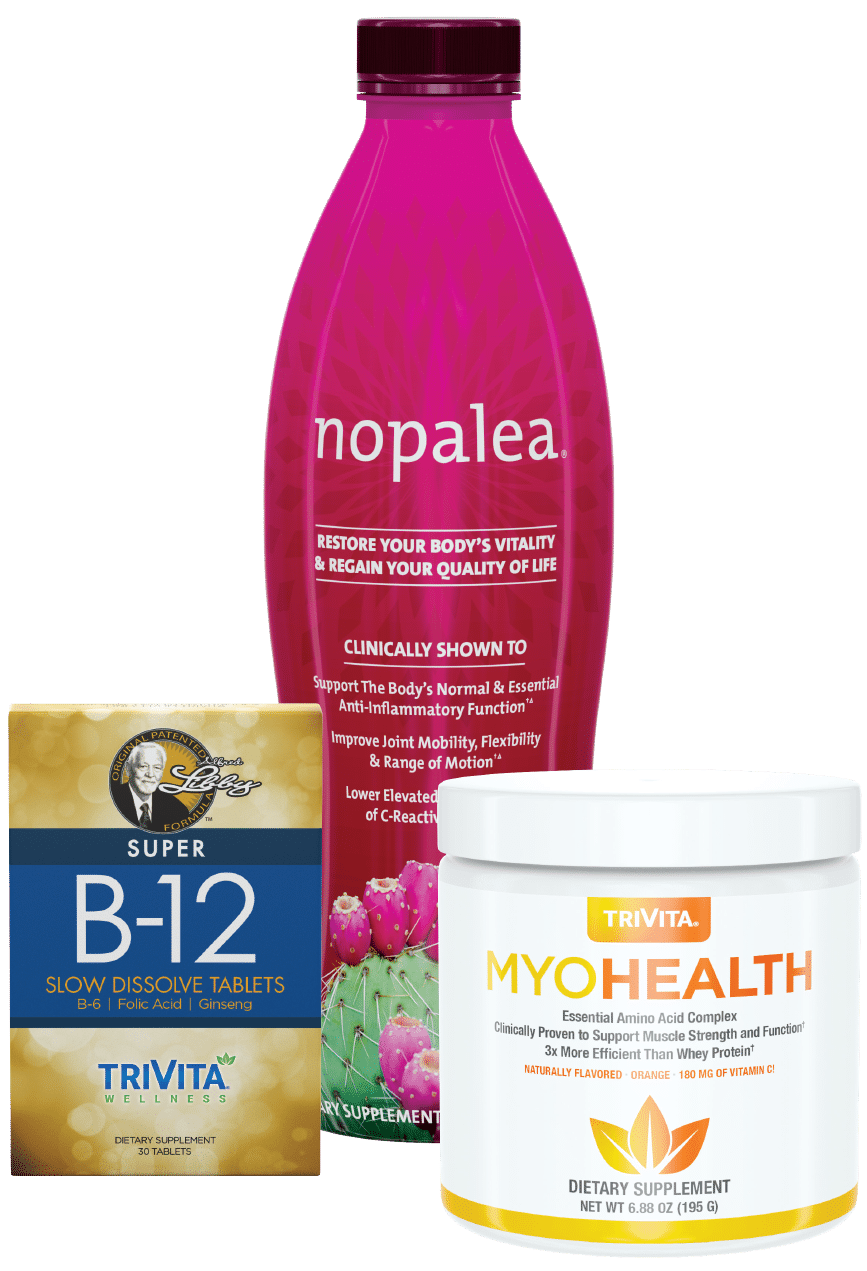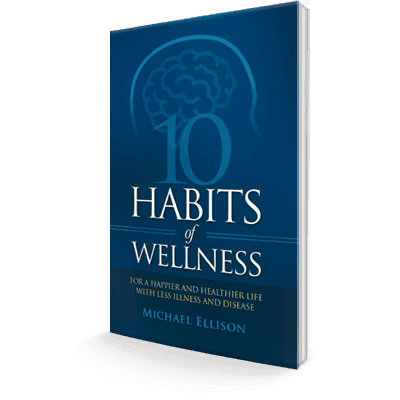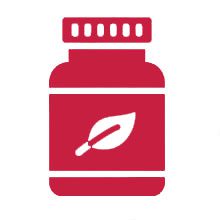Support Your Body Systems for Better Health
Cardio-Metabolic &
Circulatory System
THE SYSTEM FUNCTIONS
The cardiovascular system is a closed system that consists of the heart, arteries, veins, and approximately 5 liters of blood that the blood vessels transport. Veins carry filtered, oxygenated nutrient-rich blood throughout the body needed for metabolism, repair, and removal of carbon dioxide, toxins, and other metabolic wastes out through the lungs, digestive system, urinary tract, skin, and lymphatic system.
The circulatory system regulates inflammation.
There are five phases of inflammation:

Redness associated with increased blood flow

Swelling associated with increased lymph flow

Heat associated with the local fever produced near the injury

The pain that alerts us to the damage

The loss of function of the injured area, often involving spasms from imbalance
The circulatory system also regulates toxicity. Toxins can be internally produced (endotoxins) or acquired (exotoxins) from our environments: air, water, food, etc. When removing a toxin from the human body, special care is needed to support our normal detoxification processes. Further, attention to the consequences of toxicity is also important. For example, toxins create inflammation, which may spawn allergies or generate infections depending on the type of toxin.
Associated organs:
Heart, Blood Vessels, Blood And Lymphatic

What You Can Do To Support a
Cardio-Metabolic & Circulatory System System
Essential Vitamins & Minerals
- Vitamin B Complex
- B1 (Thiamine)
- B2 (Riboflavin)
- B3 (Niacin)
- B5 (Pantothenic Acid)
- B6 (Pyridoxine)
- B7 (Biotin)
- B9 (Folic Acid)
- B12 (Cyanocobalamin)
- Vitamin C
- Vitamin D3
- Vitamin K
Recommended Dietary Supplements
- Cholestria™
- CoEnzyme Q-10
- Essential D™
- GlucoManage® Formula
- HCY Guard®
- Nopalea™
- Omega3 Prime™
- Slow Dissolve B-12/Super B-12
- VitaCal-MagD™ K2
- Vital C™
Amazon
Herb Supplements
- Aqua Algae
- Warrior
Foods To Include
Fruits
 Blueberries
Blueberries
 Cranberries
Cranberries
 Tomato
Tomato
 Strawberries
Strawberries
 Citrus Fruits
Citrus Fruits
VEGETABLES
 Kale
Kale
 Spinach
Spinach
 Broccoli
Broccoli
 Celery
Celery
 Asparagus
Asparagus
PROTEIN / DAIRY
 Wild Caught Salmon
Wild Caught Salmon
 Fish Roe
Fish Roe
 Eggs
Eggs
NUT / SEEDS
 Flaxseed
Flaxseed
 Sesame Seeds
Sesame Seeds
 Pumpkin Seeds
Pumpkin Seeds
 Chia Seeds
Chia Seeds
 Pistachios
Pistachios
MISCELLANEOUS
 Buckwheat
Buckwheat
 Apple Cider Vinegar
Apple Cider Vinegar
 Dark Chocolate
Dark Chocolate
 Green Tea
Green Tea

Note: Be sure to do your best to shop organic, grass-fed, free-range, unprocessed and low sodium.
What You Can Do To Support a Healthy Cardio-Metabolic & Circulatory System (continued)
Daily morning cleanse: 8-12oz of lemon water
Foods you should avoid or limit:
Do your best to read the labels on packaged food. If the names are too hard to pronounce, they are likely chemical-based ingredients and not very good for you.
- Processed and high-sodium foods such as cured ham, bacon, sausage, and potato chips
- Foods that contain all-purpose flour such as pizza, bagels, pretzels, white bread, and flour tortillas
- Artificial sweeteners containing Sucralose such as yogurt, cereal, whole grain muffins, breads, and microwave popcorn
- Beware of “reduced sugar” labels which are usually loaded with artificial sweeteners such as fruit juice, ketchup, jams, jelly, syrup, soda, sports drinks, ice cream, and salad dressings.
Below is a List of Artificial Sweeteners You Should Try to Avoid:
- Aspartame
- Acesulfame
- Potassium
- Alitame
- Cyclamate
- Dulcin
- Equal
- Glucin
- Kaltame
- Mogrosides
- Neotame
- NutraSweet
- Nutrinova
- Phenylalanine
- Saccharin
- Splenda
- Sorbitol
- Sucralose
- Twinsweet
- Sweet ‘N Low
- Xylitol
Recommended Activities
Physical activity is essential for good health. New studies show even 15 minutes of elevated heart rate from activity has numerous benefits. Find activities you enjoy doing and aim for at least 15 minutes 4 to 5 times per week.
CARDIO: Biking, Hiking, Walking, Running, Swimming, Dancing, Zumba
STRENGTH: Weight Training, Pilates, Vigorous Yoga, P90X, Crossfit, Barre
FLEXIBILITY: Yoga and Stretching
Additional Information
Common Symptoms: Common signs and symptoms associated with the cardio-metabolic and circulatory system include elevated blood pressure, swelling, cold hands and feet, racing heart, varicose veins, high cholesterol, weight gain, easy bruising, chest tightness and blood disorders.
Common Disorders
- Aneurysm – Localized enlargement in artery due to weakness in the artery wall.
- Angina – Chest pain at rest or exertion due to not enough blood to the heart muscle.
- Atherosclerosis – Blockage and stiffness of arteries due to deposition of plaques of fatty material on their inner walls.
- Atrial Fibrillation – A quivering or irregular heartbeat affecting the atrial chambers of heart.
- Blood Clots – Abnormal clotting of blood causing blockages.
- Blood Disease – Any disease in the blood system..
- Cardiac Dysrhythmia – Irregular or abnormal heart rate.
- Cardiomegaly – Enlarged heart muscle.
- Cardiomyopathy – Chronic disease of the heart muscle.
- Claudication /Leg Cramps – Pain and cramping in the lower leg while walking or exercising caused by blocked arteries.
- Cystic Fibrosis – An inherited disease of the secretory (see-KREH-tor-ee) glands that make mucus and sweat.
- Diastolic Dysfunction – Inability for the lower chamber of heart to fill properly.
- Heart Attack – Lack of blood flow to heart causing tissue dysfunction or death.
- Heart Disease – Any disease that involves heart or blood vessels.
- Heart Failure – Heart is unable to pump sufficiently to maintain blood flow.
- Heart Murmur – Abnormal opening in heart.
- Heart Stent – Stent placed in heart artery to keep open.
- Heart Valve Disorder – Heart valves become too narrow and hardened (stenotic) to open fully.
- Hemophilia – Condition causes severe reduction in ability for blood to clot.
- High blood pressure – Elevated blood pressure.
- High calcium score – Elevated levels calcium in the blood.
- High Cholesterol – Abnormal blood levels of cholesterol.
- Human Immunodeficiency Virus (HIV) – Virus that damages the immune system and makes it more difficult to fight off infections and other diseases.
- Pacemaker – Internal machine that creates a heart rate.
- Raynaud’s Phenomenon – Raynaud’s condition causes pain in the extremities in response to cold temperatures.
- Rheumatic Fever – Acute fever marked by inflammation and pain in the joints caused by streptococcal infection.
- Stroke – Sudden blockage of blood flow to an organ-usually the brain.












 Blueberries
Blueberries Cranberries / Cranberry Juice
Cranberries / Cranberry Juice Tomato
Tomato Strawberries
Strawberries Citrus Fruits
Citrus Fruits Kale
Kale Spinach
Spinach Broccoli
Broccoli Celery
Celery Asparagus
Asparagus Wild Caught Salmon
Wild Caught Salmon Fish Roe
Fish Roe Eggs
Eggs Flaxseed
Flaxseed Sesame Seeds
Sesame Seeds Pumpkin Seeds
Pumpkin Seeds Chia Seeds
Chia Seeds Pistachios
Pistachios Buckwheat
Buckwheat Apple Cider Vinegar
Apple Cider Vinegar Dark Chocolate
Dark Chocolate Green Tea
Green Tea